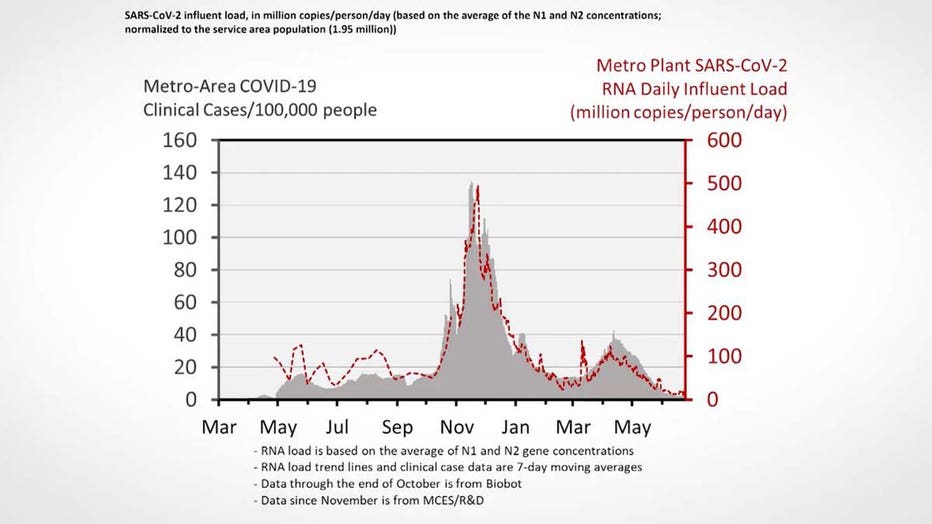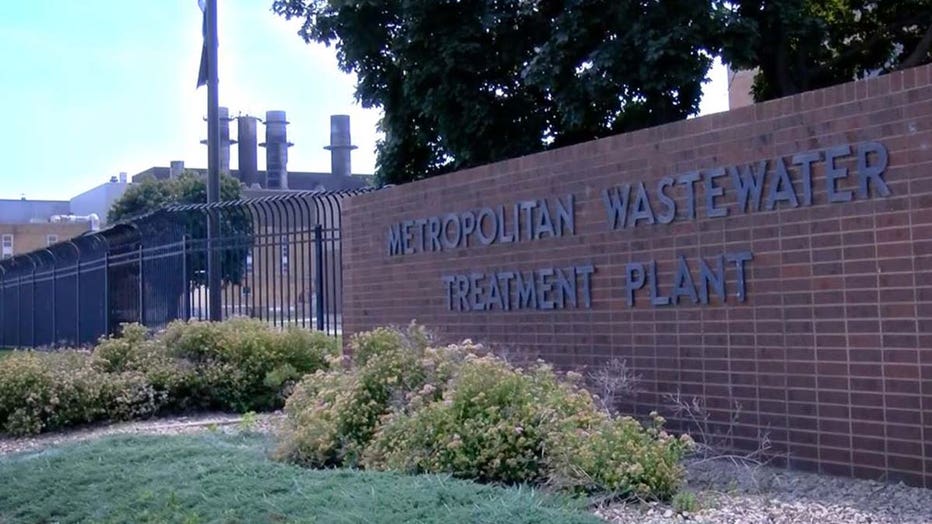Tracking the spread of omicron COVID-19 variant in Twin Cities sewage
Metro Plant research scientist Steve Balogh extracts viral genetic material from wastewater samples to track COVID-19.
ST. PAUL, Minn. (FOX 9) - Minnesota research scientists say they are seeing increased levels of the omicron variant in wastewater samples from the Twin Cities metro area.
Steve Balogh, a research scientist at the Metropolitan Wastewater Treatment Plant in St. Paul, has been extracting droplets viral genetic material from sewage samples since learning about the technique in March 2020. Each week, he passes those vials to researchers at the University of Minnesota Genomics Center for identification and analysis.
"The idea was by measuring the virus in the wastewater, you can actually predict what the number of cases would be in the community," Balogh said in a video explaining their research.
The analyses of wastewater samples have detected the new variants of COVID-19 in the last year – information that the researchers can then pass along to the Minnesota Department of Health.
"Since early 2021, we’ve monitored the variants of concern that have emerged," Balogh said in Monday’s news release. "We tracked the rise of Alpha last spring, its replacement by Delta last summer, and now we’re observing the first signs of Omicron, which could end up replacing Delta."
The omicron variant is now estimated to be the dominant COVID-19 strain in Minnesota, state health officials said Wednesday.
The research doesn’t indicate individual positive cases or how and where outbreaks occur, but it can help give a measure of how prevalent disease is in an area. That data can then be compared to the health department’s information on COVID-19 testing and infection rates.

Tracking COVID-19: Comparing virus presence in wastewater and positive cases in Minnesota (Metropolitan Council)
Kenneth Beckman, director of the University of Minnesota Genomics Center, said he was surprised by how good the data has been.
"What I did not expect was for the correlation between what we were seeing in wastewater and what was being reported from testing of actual patients in the community -- so the positivity rate, to be so closely linked. That was really shocking to me," Beckman said in the video. "The idea of tracking disease in wastewater worked much better than expected."

Metropolitan Wastewater Treatment Plant in Saint Paul, Minnesota
The Metropolitan Wastewater Treatment Plant, located on the Mississippi River in St. Paul, is the largest of nine wastewater treatment facilities in Minnesota. The samples were pulled from the 172 million gallons of wastewater the facility treats each day.
Minnesotans rush to get COVID-19 tests ahead of Christmas gatherings
Minnesotans were lying up on Wednesday to get COVID-19 tested ahead of Christmas and as omicron cases spread across the state.

